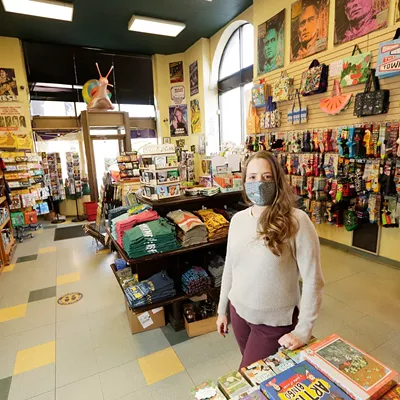The world’s literature has long shared accounts of societies during epidemics and pandemics of one kind or another, and one of the best-known opening lines in all of literature deals not with a viral epidemic, but one of violence that occurred in France during the French Revolution of the late 1700s.
“It was the best of times. It was the worst of times. It was the age of wisdom. It was the age of foolishness,” and if those lines from A Tale of Two Cities don’t speak to us today, no lines ever will. Charles Dickens was, if anything, not only a man of his time, but of every time, and the state of man throughout time hasn’t really changed much. It is almost always the best and worst of times simultaneously, always a time of foolishness, and as is noted in G. K. Chesterton’s lines from his novel The Napoleon of Notting Hill.
“The human race, to which so many of my readers belong, has been playing at children’s games from the beginning, and will probably do it till the end, which is a nuisance for the few people who grow up,” reads the opening of Chesterton’s novel.
We who have grown up, or at least old, like to believe we’ve become wiser with time, so it is bothersome to see the eternally optimistic and reckless young, the self-oriented young, jeopardize us because they feel somehow immune to the ravages of COVID-19.
Today’s wisdom tells us to self-quarantine, yet too many young people are dancing and drinking in clubs and lying on the world’s beaches spreading the virus as if there is no tomorrow, and since we don’t ever know how many tomorrows we have left at any time, perhaps they are the wise ones after all. Why be concerned about a virus in China? Why, indeed?
“Life changes fast,” however, as Joan Didion writes in the first line of The Year of Magical Thinking. We learned that rather startling truth when we read in December of 2019 that there was a virus in China. We read it without alarm, without concern, without interest. The president of the United States treated the news as inconsequential, no more serious than the flu, for after all, to quote J. D. Salinger ’s protagonist in his masterful short story “The Laughing Man”: “It’s a long way back and forth across the Paris-Chinese Border.”
One of the strange aspects of isolation that comes with quarantine, self-imposed or not, is the passage of time. After only a few weeks I’m beginning to carve out days in the sheet rock of my office with four upright lines crossed diagonally for every fifth day. I feel like The Man in the Iron Mask, The Count of Monte Cristo, The Prisoner of Zenda. As prisoners in our own homes, we’ve become alert to time and its passage, or of its not passing at all.
“Time is not a line but a dimension,” reads Margaret Atwood’s opener in Cat’s Eye, and if I’ve learned anything in the last four weeks, that’s it. Time has become a dimension in which I float from room to room like the characters in Sartre’s masterpiece No Exit, seeking a way out, or at least seeking another dimension.
Perhaps where I’m going with this is that during our life in quarantine, books are once again, finding their way into the hands of many of us who gave them up for HBO and Netflix, those entertainment brothers in crime. I have certainly fallen to the Pied Piper power of their temptations. Who hasn’t? But it has been almost a newfound pleasure to sit and read for a while, and to do so without the motivation of having the book completed in time for a book club, reading for pleasure and forgetting about time entirely.
I am currently basking alternately in O Pioneers, one of Willa Cather’s wonderful novels about life on the prairies of Nebraska, while at the same time imprisoned in a Nazi cell with Verity, Elizabeth Wein’s courageous protagonist in Code Name Verity.
O Pioneers begins, “One January day, thirty years ago, the little town of Hanover, anchored on a windy Nebraska tableland, was trying not to be blown away.” Citizens in small Nebraska towns throughout the Midwest and the West in the late 1800s existed in a quarantine of their own. Today’s evidence shows that rural America is less affected by the virus than is urban America.
In my personal quarantine over the last weekend I dusted my books, something I probably should do more often, and I was pleased to read semi-familiar titles again, and I enjoyed the colorful display of book bindings. I remembered characters who had once been companions, if not friends. I remembered adventures and love stories I had forgotten, and which once again opened my eyes to the pleasures of a good read.
Perhaps it’s too simple to suggest reading as the answer to surviving our new dimension of time, yet from the very beginning of human history, long before the electronic and video age, people passed their days reading, sometimes aloud to one another, sometimes for pleasure, sometimes to pass the time during quarantine. I’m currently reading Thornton Wilder’s The Bridge of San Luis Rey aloud to my fairly new bride.
In Giovanni Boccaccio’s The Decameron, written in 1353, pilgrims quarantined in an inn due to the plague tell tales to one another to pass the time. Chaucer’s Canterbury Tales, published only 34 years later, shares stories by pilgrims on the way to Canterbury, stories ranging from the bawdy to the sacred.
As Giorgio Bassani wrote in The Garden of the Finzi Continis, a beautiful story of self-imposed physical and psychological isolation to be safe from the Nazis presence in Italy: “Even in a city as small as Ferrara, you can manage, if you like, to disappear for years and years, one from another, living side by side like the dead.”
So perhaps to get through this most unusual time, those who have moved away from reading, might help to manage long days and weeks by once again becoming readers, once again becoming raconteurs, storytellers in their own right. After all, how many times did our fathers begin a conversation with, “Why, when I was a boy…?” ♦
M. P. Aleman is a retired English teacher and former adjunct professor at Whitworth and WSU and has published poetry, short stories and columns.





















